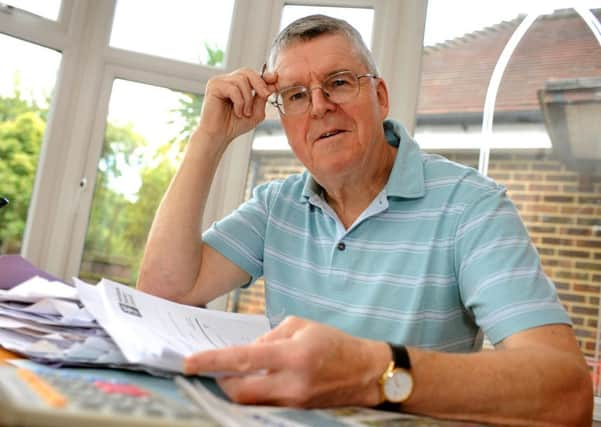Calls for return of unrestricted public question time at council meetings


Revisions to the council’s constitution approved in December 2016 mean that questions submitted by members of the public have to relate directly to agenda items.
Before then questions had been accepted and answered during meetings on any topic relating to HDC’s powers and decisions.
Advertisement
Hide AdAdvertisement
Hide AdDefending the decision last year Tom Crowley, then chief executive at HDC, explained how a review of the constitution had identified ambiguities, while rules had been loosely interpreted.
He said it was ‘logical and more efficient to ensure that any questions are relevant to the business on the agenda before members at a particular meeting’.
But the changes and their impact has been repeatedly challenged by Rudgwick resident Paul Kornycky, who has pointed out how a number of other local authorities do not have similar restrictions.
Back in December 2017 he welcomed the appointment of Glen Chipp as the successor to Mr Crowley as HDC’s chief executive, moving from Epping Forest District Council in Essex, where he holds the same position.
Advertisement
Hide AdAdvertisement
Hide AdMr Kornycky said: “I fervently wish that he will help restore some local democracy to Horsham district.
“He can begin by challenging why the rights of Horsham residents have been so diminished in recent times.
“For example, residents of Epping Forest district can freely ask questions of their council or cabinet.”
But in response to his letter in the County Times, Claire Vickers, HDC’s cabinet member for planning and development, described how Epping Forest had restrictions on public questions similar to HDC’s.
Advertisement
Hide AdAdvertisement
Hide AdShe said: “Horsham District Council’s new chief executive officer (who will join us in April) would like the public to know that the information regarding Epping Forest contained in the published letters mentioned above is inaccurate, and that their processes are, along with many other councils, very similar to those of Horsham District Council.
“He confirms that Epping Forest District Council residents can submit questions to Council under the public questions item, ONLY if they are relevant to an item on the agenda, just like here in Horsham.”
But the County Times has seen email exchanges between Epping Forest’s democratic services team and Steven Neville, an elected Green councillor.
He asks: “Is there a plan to make public questions restricted to matters on the agenda only?”
Advertisement
Hide AdAdvertisement
Hide AdAn officer responded: “Members of the public can ask question at the Council, the Cabinet and the Overview and Scrutiny Committee meetings.
“Questions to the Cabinet and Overview and Scrutiny can only be on an agenda item. Council has no restrictions.”
The County Times approached Mrs Vickers for a response, but was told ‘she does not wish to comment further on this matter’.
Mr Kornycky said: “This ‘silence’ is completely unacceptable. We need to know how and why apparently inaccurate information has been supplied by HDC to the WSCT thereby potentially misinforming readers.”
Advertisement
Hide AdAdvertisement
Hide AdHe added: “What we ultimately need is for councillors to recognise (albeit belatedly) this whole injustice and debate a motion for council to restore the long-established democratic right of an ‘open’ public question time at Horsham District Council meetings.
“Why should Horsham district residents have fewer rights than all other West Sussex residents or even of Epping Forest?”
His call was supported by David Skipp, HDC’s Lib Dem group leader.
He said: “We need people to engage with the political process and we should not be afraid to encourage serious debate and scrutiny.
“To prevent people from questioning their elected representatives stifles transparency and engenders mistrust and cynicism and suggests that there is something to hide.”